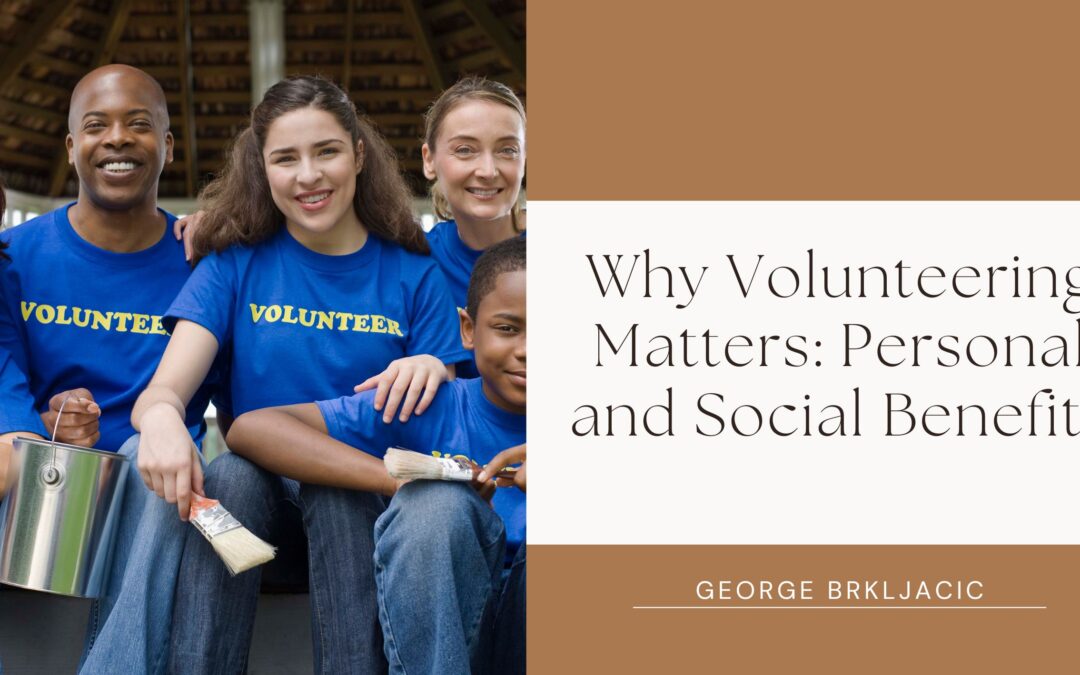Volunteering is one of the most selfless acts a person can engage in, and its benefits extend far beyond the immediate help it provides to others. While giving back to the community is often the primary motivator for volunteering, the personal and social rewards that come with it are equally significant. Volunteering can enrich your life, broaden your perspective, and create lasting social connections that contribute to a healthier, more fulfilling life.
On a personal level, volunteering offers a unique opportunity for personal growth. By stepping outside of your usual routine and dedicating time and energy to a cause you care about, you can develop new skills and competencies. Whether you’re learning how to manage a team, improve your communication skills, or tackle complex social issues, volunteering provides hands-on experience that can be applied in other areas of your life, including your career. Many volunteers find that the challenges and responsibilities they take on help them grow as individuals, boosting their self-confidence and sense of accomplishment.
In addition to skill development, volunteering can also promote emotional well-being. Engaging in altruistic activities can increase feelings of purpose and fulfillment, providing a sense of meaning in life. Helping others—whether it’s through providing meals to the homeless, tutoring children, or offering companionship to the elderly—creates a deep sense of satisfaction. This sense of contribution to something larger than oneself can lead to improved mental health by reducing stress and alleviating feelings of loneliness or isolation. Research has shown that volunteering can lower rates of depression and anxiety, especially among older adults, by fostering a sense of belonging and community.
Volunteering also provides an opportunity for social connection. Many people volunteer because they want to give back, but in doing so, they often meet like-minded individuals who share similar values. These social bonds can form the foundation for long-lasting friendships and a sense of community. In fact, volunteering can be a great way to expand your social circle, whether you’re new to an area, looking to connect with others, or seeking to build relationships with people from diverse backgrounds. The shared experience of working toward a common goal can create a sense of camaraderie and mutual respect that transcends social barriers.
From a social standpoint, volunteering has the potential to create a ripple effect of positive change. By dedicating time and resources to help others, volunteers contribute to the overall well-being of their communities. This can range from improving access to education and healthcare to creating more sustainable environments or helping marginalized groups. Volunteering fosters a culture of cooperation and empathy, encouraging others to take part and create a collective impact. As more people get involved, the community as a whole becomes stronger, with increased social cohesion and a greater sense of responsibility toward one another.
Moreover, volunteering can have a tangible impact on society. Volunteers often support organizations and initiatives that provide essential services, from local food banks to disaster relief efforts. These efforts can directly address social issues, improve living conditions, and promote social justice. Volunteers help fill gaps in services that may be overlooked by government programs or private sector organizations. By contributing their time, volunteers become part of a larger movement aimed at creating a more just and equitable society.
On a broader scale, volunteering also plays an essential role in addressing global challenges. Whether it’s tackling poverty, advocating for human rights, or working on environmental sustainability, volunteers are integral to the success of many global initiatives. Their contributions—often in the form of expertise, labor, or resources—help to drive progress toward achieving sustainable development goals and creating a better world for future generations.
Ultimately, the personal and social benefits of volunteering are vast and profound. It enhances mental and emotional well-being, builds new relationships, and fosters a sense of belonging. It also provides opportunities for skill development and career growth while enabling individuals to contribute to meaningful change. In a world that often feels disconnected, volunteering offers a chance to make a tangible difference and create a more compassionate, interconnected society.

